International Human Rights Day was recognized and celebrated at West Hartford’s Hall High School with a day-long program of workshops and a panel discussion.
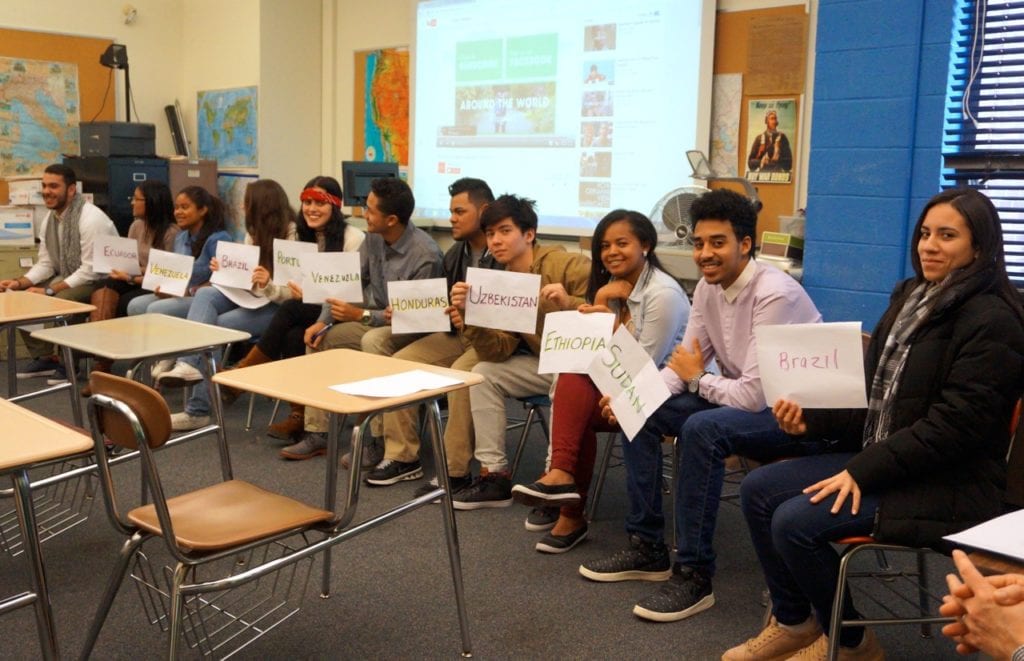
Students in ‘The American Dream’ workshop speak about their experiences. Photo credit: Ronni Newton
By Ronni Newton
Hall High School students did not attend classes Wednesday, but instead spent the entire day learning from each other and a diverse group of panelists as the community recognized and honored International Human Rights Day.
This is the third year that the West Hartford school has dedicated an entire day to human rights, and Assistant Principal Shelley Solomon said this year’s program was bigger and better than ever. There were 39 different workshops – all led by students. Throughout the day each Hall student attended two workshops of their choice, as well as a multimedia panel presentation focused on acceptance and other human rights-related topics.
“We have created a special day centered on students, faculty and staff joining together to continue our conversation about breaking down barriers and building a culture of respect for all,” said Principal Dan Zittoun. “We believe this day truly embodies every branch of our school’s core values and beliefs, especially the cultivation of a compassionate and engaged community, a safe and well-maintained environment, and dynamic and varied instruction.”
Personal stories were shared throughout the day-long sessions, and some of the topics were a bit uncomfortable, but that made the presentations and discussions that much more meaningful.
In the “American Dream” workshop, English language learners shared their personal experiences in response to questions posed by other students.
Megan Delgado, a junior from Ecuador, said it was difficult and expensive to get a visa to come to the U.S., and not always a guarantee that it would be granted. Once she got her visa she faced the reality that she was going to leave her parents and other family members behind to come to the United States. “But I was excited because I would have a better future,” she said.
In response to what is most different about being in the U.S., sophomore Sardor Mirzarakhimov, a native of Uzbekistan, said it was the food. “In my country we don’t eat ham or pork. It’s very bad when Muslims eat pork,” he said. But he said that one day he ordered a pizza with pepperoni – and had no idea it was made from pork. “I didn’t know what to do, it was so good,” he said.
The students also responded to the question of when they first felt “American.” Solomon said that one of the students in a workshop earlier in the day had said, “The first time I felt American is sitting here right now, and being able to talk to you.”
Ricquon Tyson led the “Seeing the Person in Prisoner” workshop, speaking to his fellow students about the “school to prison pipeline” and how students of certain races and ethnicities are suspended more often than others. “Are our children being pushed to prison?” was a question he asked his fellow students to consider.
The “Building Bridges” workshop brought together students of all abilities.
Presenter Lily Shakun said that in her visual arts class she works with some special needs students on art projects and thinks its important for all students to be able to relate to each other. Students attending the workshop played games like Connect 4, and learned to communicate through sign language.
“What commitment can you make to connect?” was the challenge of the workshop. “We want kids to say ‘Hi’ and sit at tables at lunch,” Lily said. She thinks the workshop will be a success.
Other workshops topics included “Allyship through the Lens of Race,” “End of Stigma. Period.,” “The Changing Roles of Masculinity in Society,” “LGBTQ+ Definitions Bingo,” “Human Rights from an Islamic Perspective,” as well as several sessions about hunger.
In the auditorium students attended a multimedia presentation moderated by English teacher Matt West. Panelists included West Hartford Police School Resource Officer Leo Negron, Victoria Christgau from the Connecticut Center for Nonviolence, Aida Mansoor from the Muslim Coalition of Connecticut, Melissa Cordner from True Colors, and Sharone Kornman, the daughter of two Holocaust survivors, who all shared their personal stories.
West engaged students in the audience with a “stand-up-sit-down” exercise. He asked them to stand up if they had witnessed human rights violations ranging from cyber bullying, to media bias, to harassment.
“Stand up if you’ve seen discrimination here at Hall High School,” West said, and remarked that three-quarters or more of the audience stood up.
“If that many of you stood up for your peers all the time there would probably be far fewer standing up for other [witnessed violations],” West said.
However, he told the students that someone in the day’s first session of the multimedia presentation pointed out something very important – that not everyone can stand up.
“It was my blind spot, forgetting that some people can’t stand up,” West said. “On Human Rights Day I’m the moderator and I did that. I felt horrible.”
“Everybody makes mistakes,” he said. West said it gave him the opportunity to reflect, and the inspiration to do better.
Like what you see here? Click here to subscribe to We-Ha’s newsletter so you’ll always be in the know about what’s happening in West Hartford!
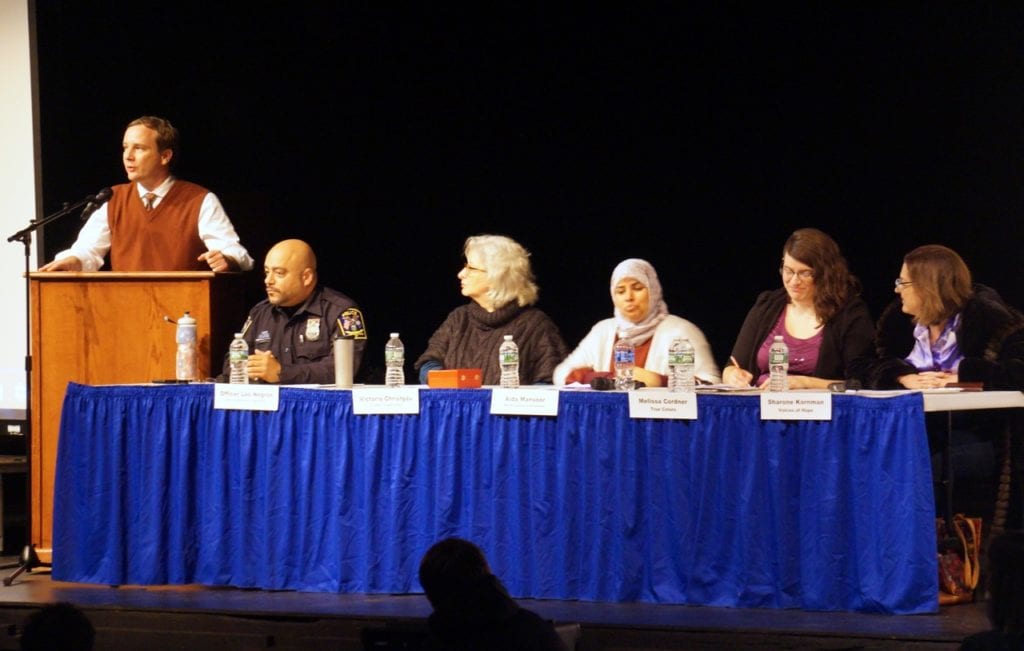
English teacher Matt West (left) moderated a panel that included (from left) West Hartford Police School Resource Officer Leo Negron, Victoria Christgau from the Connecticut Center for Nonviolence, Aida Mansoor from the Muslim Coalition of Connecticut, Melissa Cordner from True Colors, and Sharone Kornman, the daughter of two Holocaust survivors. Photo credit: Ronni Newton
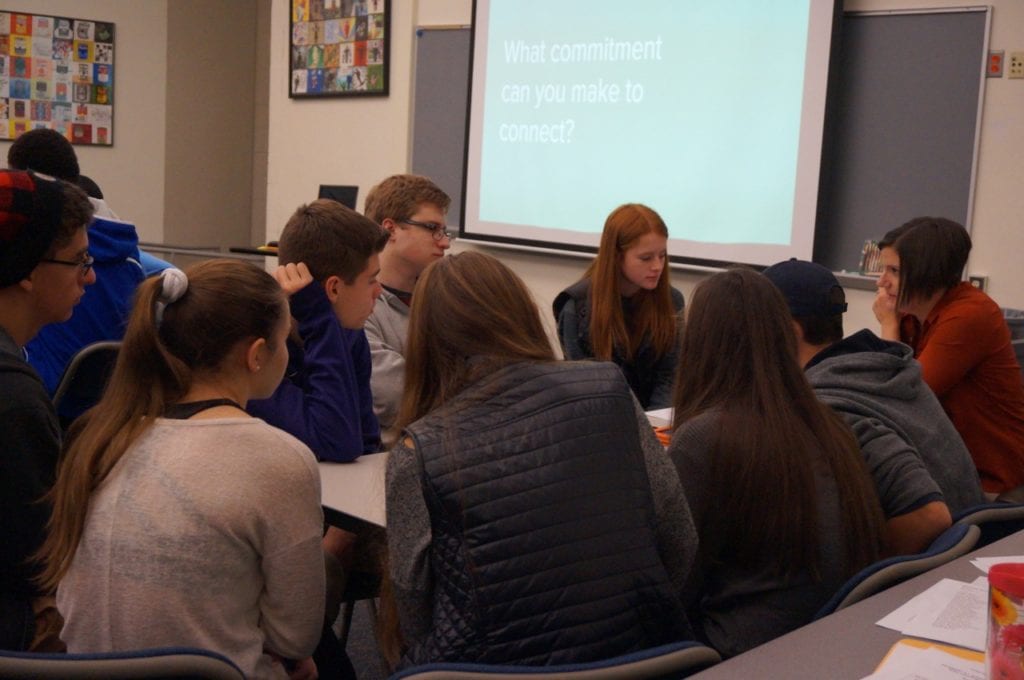
Students ‘Build Bridges’ in a workshop that focused on communication with special needs students. Photo credit: Ronni Newton
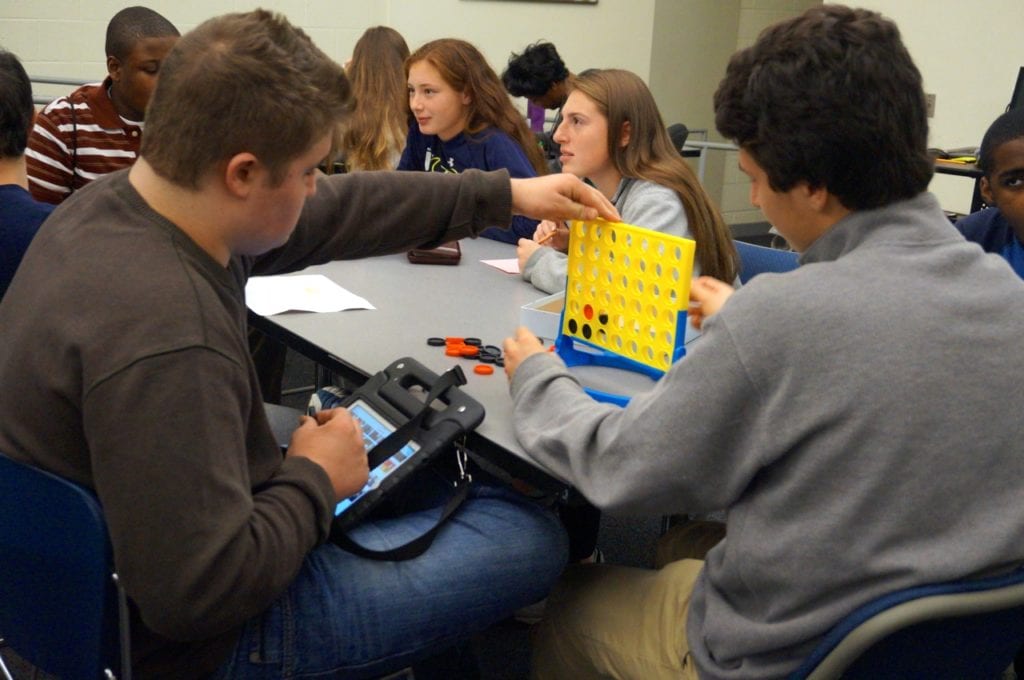
Students play Connect 4 in the ‘Building Bridges’ workshop. Photo credit: Ronni Newton
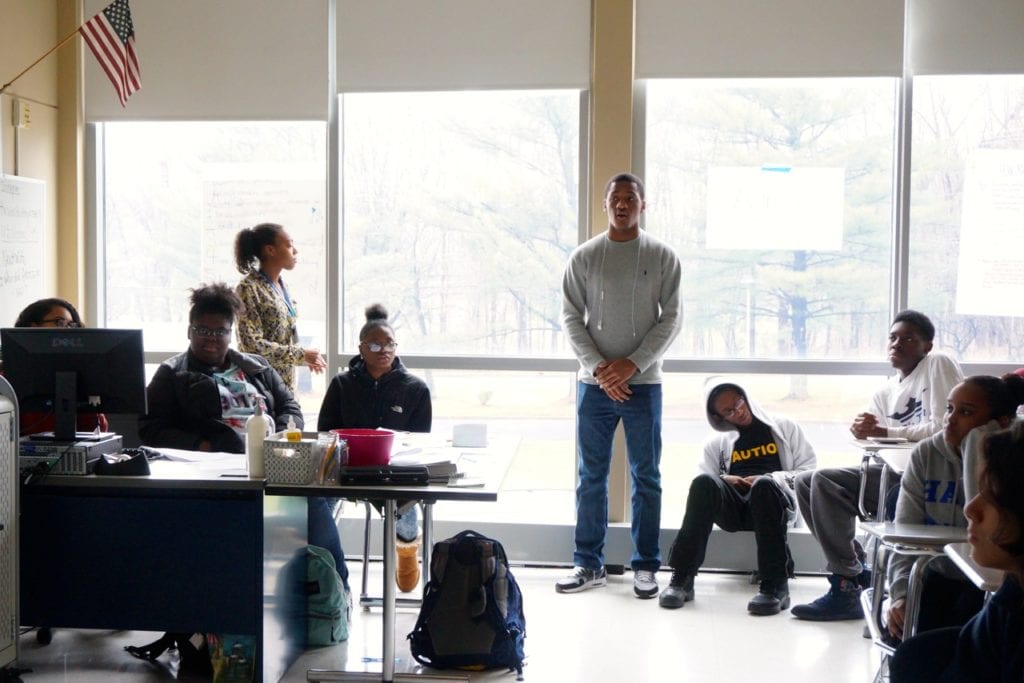
Ricquon Tyson (standing) led the ‘Seeing the Person in Prisoner’ workshop. Photo credit: Ronni Newton

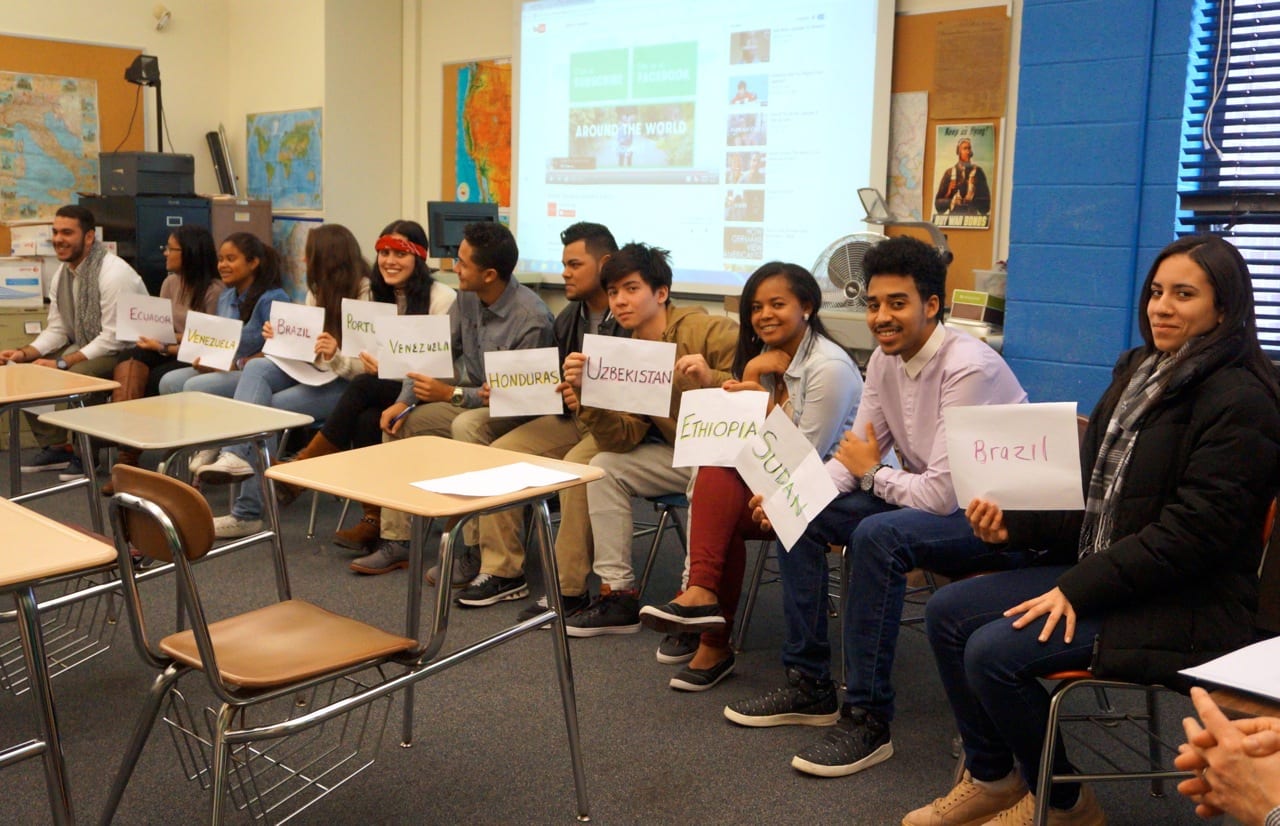




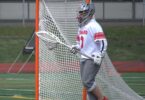
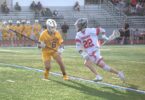
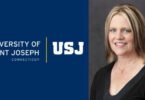
I’m happy that Hall devotes time on learning about Human Rights in many forms. My son co-led a group on hunger. I was disappointed, though, to learn how many kids stayed home from school. Now, more than ever, we need to be paying attention to issues regarding Human Rights.
I sat in on the Building Bridges seminar. The students did a great job presenting about how students at Hall could reach out more to students with disabilities. There was a video of what its like to have sensory overload at a coffee cafe from the point of view of a person with autism. It would be great if more students would join Circle of Friends or Unified Gym or come up with afterschool clubs with their disabled peers. While many clubs are offered after school at Hall, none are designed to include teens with autism or other disabilities. They just go home. Perhaps a microbusiness club could be formed to help teens with autism develop job skills thru a student imagined microbusiness that could follow the teen into adulthood. Given the dire after- 21 lack of programs in CT for the disabled, such an enterprise would be innovative and Hall would be a leader in CT.
Great ideas, Darlene! ~Ronni